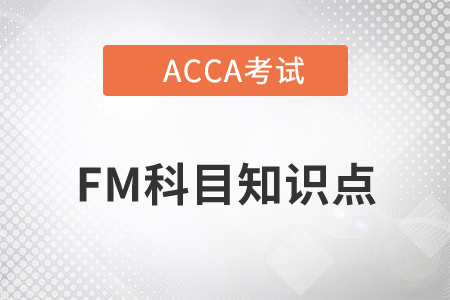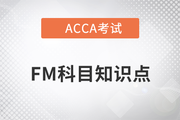Capital markets(資本市場)是什么_2021年ACCA考試FM知識點
這一秒不放棄,,下一秒就有希望!堅持下去就會成功,。東奧小編為大家整理了ACCA考試重要知識點,,希望能夠幫助到大家。

【內容導航】
Capital markets 資本市場
【知識點】
Capital markets 資本市場
Capital markets 資本市場
Capital markets
Capital markets are markets for trading in long-term finance, in the form of long-term financial instruments such as equities and corporate bonds.
A stock market (in the UK: the main market plus the Alternative Investment Market (AIM)) acts as a primary market for raising finance, and as a secondary market for the trading of existing securities.
Firms obtain long-term or medium-term capital in one of the following ways.
(a) They may raise share capital. Most new issues of share capital are in the form of ordinary share capital. Firms that issue ordinary share capital are inviting investors to take an equity stake in the business, or to increase their existing equity stake.
(b) They may raise debt capital. Long-term debt capital might be raised in the form of loan notes, corporate bonds, debentures or convertible bonds.
The risk-return trade-off
Higher risk investments require a higher return to be paid.
Some forms of investment are listed below in ascending order of risk.
(a) Government bonds
(b) Company bonds
(c) Preference shares
(d) Ordinary shares
The reverse yield gap
Because debt involves lower risk than equity investment, we might expect yields on debt to be lower than yields on shares. More usually, however, the opposite applies and the yields on shares are lower than on low-risk debt; this situation is known as a reverse yield gap.
It can occur because shareholders may be willing to accept lower returns on their investment in the short term, in anticipation they will make capital gains in the future.
Primary and secondary markets
Primary markets enable organisations to raise new finance, by issuing new shares or new bonds. In the UK, a company must have public company status (be a publicly listed company, or 'plc') to be allowed to raise finance from the public on a capital market.
Secondary markets enable investors to buy and sell existing investments, should they wish to do so. The marketability of securities is a very important feature of the capital markets, because investors are more willing to buy stocks and shares if they know that they could sell them easily, should they wish to.
Exchange and Over-the-counter
Secondary markets may be organised on exchanges or may consist of over the counter (OTC) transactions.
Exchanges
Secondary markets for financial securities can be organised on exchanges, where buyers and sellers of securities buy and sell securities in one location, the exchange. Examples of exchanges include the London Stock Exchange and the New York Stock Exchange for the trading of shares.
Over the counter
Secondary markets can also operate as over the counter (OTC) markets, where transactions do not involve buying and selling through an exchange, but customers negotiate individual transactions, usually with a financial intermediary such as a bank.
Securities that are issued in an over the counter market can be negotiable or non-negotiable.
Negotiable securities can be resold.
Non-negotiable securities cannot be resold.
Institutional investors
Institutional investors are institutions which have large amounts of funds which they want to invest, and they will invest in stocks and shares or any other assets which offer satisfactory returns and security or lend money to companies directly. The institutional investors are the biggest investors in the stock markets.
Securitization
Securitisation is the process of converting illiquid assets into marketable asset-backed securities.
The oldest and historically most common type of asset securitisation is the mortgage-backed bond or security (MBS). Asset securitisation (or securitisation) is the conversion of illiquid assets into marketable securities.
Very simplistically, the process is as follows.
(1) A financial entity can purchase a number of mortgage loans from banks.
(2) The entity pools the mortgage loans together.
(3) The entity issues bonds to institutional investors. The money raised from issuing the bonds is used to pay for the mortgage loans.
(4) The institutional investors now have the right to receive the principal and interest payments made on the mortgage.
夢想一旦被付諸行動,,就會變得神圣,。備考ACCA考試的過程雖然會遇到很多的困難,,但只要我們堅持一定會順利通關,。
注:以上內容來自Echo老師基礎班第6講
(本文為東奧會計在線原創(chuàng)文章,僅供考生學習使用,,禁止任何形式的轉載)



























 津公網安備12010202000755號
津公網安備12010202000755號